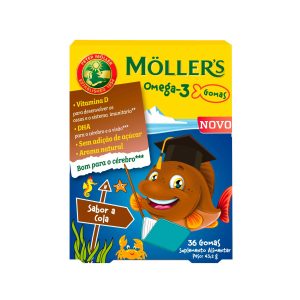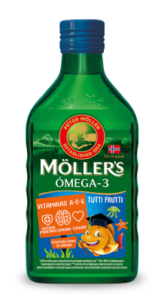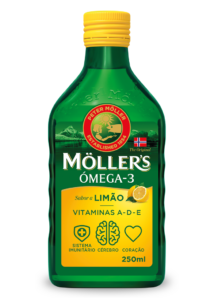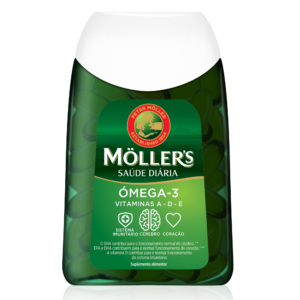Are you following the old rule of taking cod liver oil in every month that has an ”r” in its name? But are vitamin D supplements really only for the winter months?
Home » Why take vitamin D supplements in summer?

We’ve always been told it’s important for us to get enough vitamin D during winter. In summer, on the other hand, we’re told we don’t need vitamin D supplements because we’re exposed to more sunlight.
Read more articles about vitamins and minerals
But British summers can be moody, to put it mildly. What do you do when the sun keeps hiding behind the clouds and the rain buckets down for days on end? You stay inside or cover up in clothes when you go out.
And when the sun does come out, you apply sunscreen, which admittedly protects your skin from harmful sunrays but it also prevents it from forming the important vitamin D.
This is why it may be wise to not only take vitamin D supplements in winter, but all year round.
What vitamin D does for you
Vitamin D is good for your teeth and helps you maintain a normal skeletal structure. It also helps your immune system to function normally – in other words, it helps you stay healthy.
Vitamin D deficiency is not as widespread in the southern hemisphere as it is in northern climates. However, immigrants with darker skin may find that they need extra vitamin D when they move to northern countries with less sun.
Elderly people should also be extra careful to make sure they get enough vitamin D to maintain a healthy skeleton.
One of the best vitamin D supplements
There are not many foods that contain large quantities of vitamin D. Oily fish, such as salmon, mackerel, herring and trout are some foods rich in vitamin D. You will also find smaller amounts of vitamin D in dairy products fortified with the vitamin. If you eat 200 grams of oily fish per day, you will almost get your daily dose of vitamin D. However, for most people, even a normal, healthy diet will not provide enough vitamin D.
One of the best vitamin D supplements is cod liver oil, which is why many people take a spoonful every day, all year round. It’s the easiest way to ensure you get enough vitamin D.
What is good health?
Do you have a good lifestyle?
Lifestyle simply means the way in which you live. Health and lifestyle go hand in hand. You might feel you have a good lifestyle if you are physically active, eat healthily and generally experience a sense of wellbeing. Conversely, if you want good health you should also have a good lifestyle.
Physical activity is the major contributor to a good lifestyle, but diet, drugs, stress, sleep and social conditions are also play an important role. Being able to use the body properly to avoid injury also affects lifestyle. Physical activity can also prevent depression and help you to recover more quickly from mental illness, both of which obviously affect your lifestyle.
Diet can be a difficult topic for many. Perhaps you eat too much or too little or maybe you find it hard to know what foods to combine to have a balanced diet. It’s also important to eat food that contains important vitamins, minerals and dietary fibre, omega-3 and antioxidants. On top of all this, you also need to get enough energy, protein and the correct fatty acids. The requirement for these nutrients changes throughout your life. When you are older you also have different requirements than children and younger adults. Women also have different requirements than men. Pregnant and breastfeeding mothers also have special requirements.
When you get older, you lose muscle mass and your body requires less energy and therefore less food. You may lead a less active life than you did before, which is why you require less food. However, your need for minerals, vitamins and other nutrients remains the same. Of course, there are plenty of healthy and active older people, but when you reach 70 to 80 years of age, it’s easier to become ill, especially during flu season.
Some steps you can take to improve your lifestyle and health are to:
- eat a healthy and varied diet
- stay active
- watch your weight
- avoid too much alcohol and don’t smoke
- get enough sleep
- think positive
- practise good hygiene
What is good quality of life?
The World Health Organisation (WHO) defines quality of life as a state where the individual can realise their potential, cope with normal stressful situations, work in a rewarding and positive way, and be able to contribute to others and society.
Quality of life is a wide and somewhat diffuse concept that includes joy in, and a desire for, life. These are values that are rather felt than measured, which in turn are based on personal environment and choices. Quality of life doesn’t necessarily depend on being healthy or sick. It’s the moments between worries, sorrows, problems and ailments that matter. For example, if you have a chronic illness, a feeling of mastery can be important when talking about quality of life.
To sum up, quality of life is a combination of health, lifestyle, networks and social support. It’s about experiencing joy, meaning in life, satisfaction, security and a sense of belonging, as well as being able to use your strengths. It’s also about feeling interest in life, coping with everyday situations and a being committed to something or someone. If you have good quality of life, you will be able to cope better with the inevitable stressful situations in life.
Learn more
Programa de exercícios para idosos
Healthy Aging Healthy Bones
Dieta saudável durante a gravidez
Brain Healthy Aging
Boa saúde, estilo de vida e qualidade de vida – O que tudo isso significa?
Cod Liver Oil Healthy Aging








